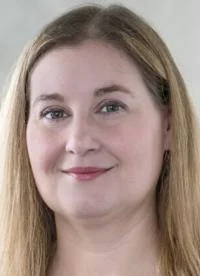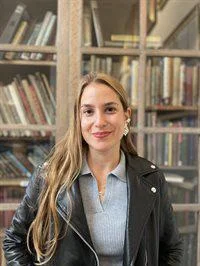LSE Research Showcase

Free events for the LSE community
Join us for our latest series of coffee-break talks on campus, with free hot drinks and pastries, showcasing some of the fascinating research from our academic community. The sessions are open to LSE staff, students, alumni and their guests, as well as prospective students. The talks are held in person on LSE campus, but you can catch up with past sessions below and on our YouTube channel. For more information, please contact research.engagement@lse.ac.uk.
Read more accessible stories about LSE research in our online research magazine, Research for the World.
Winter series 2026
Sign up for the Winter Research Showcase series. Booking will close on the morning of each event.


Rethinking violence through ‘‘Toxic Town’’
Tuesday 10 February, Shaw Library, 11-11.30am

Can international courts judge without political constraint?
Tuesday 17 February, Shaw Library, 11-11.30am

How refugee women practice politics in the UK
Tuesday 24 February, Shaw Library, 11-11.30am

Tribal Politics: how Brexit divided Britain
Tuesday 3 March, Shaw Library, 11-11.30am

Tackling indoor air pollution - making the invisible visible
Tuesday 10 March, Shaw Library, 11-11.30am

The tyranny of ‘‘could’’: why limits give life meaning
Tuesday 17 March, Shaw Library, 11-11.30am

Does speed improve justice? Fast-track courts and violence against women in India
Tuesday 24 March, Shaw Library, 11-11.30am
Catch up with previous series
A mouse in a cage: how relations with laboratory animals can inform understandings of care
Dr Carrie Friese
The ‘‘crisis of care’’ is often understood as an economic and political issue in which the work of caring for others has been devalued. However, this lens can overlook the experiences of those involved in care work. Can observing the treatment of rats and mice in biomedical science offer another understanding of care? Drawing on ethnographic research into laboratory animals and those who look after them, Dr Carrie Friese’s new book, A Mouse in a Cage, proposes a different way of viewing, and valuing, care work.
Watch a recording of this event
Developing technology for the public interest: the cautionary tale of Babylon Health
Dr Alison Powell
With the NHS frequently described as ‘‘in crisis’’, some have positioned partnerships with tech start-ups as the solution. Yet, the values and incentives of venture-backed start-ups can conflict with the public interest principles that define the NHS. In this talk, Dr Alison Powell draws on a new study to tell the cautionary tale of Babylon Health, which went bankrupt in 2023, to show the tension between ‘‘blitzscaling’’ – a tech-oriented business growth strategy – and the values underpinning NHS clinical practice. The talk investigates how ideas about speed and scaling, as well as claims about the power of AI, influenced clinical labour practice and medical device regulation – with implications for future public interest technology development.
Watch a recording of this event
Learning from complaints in organisations
Dr Tom Reader
Most organisations receive complaints from their end-users and stakeholders, and this feedback can be essential for both correcting problems and driving innovation. However, many organisations struggle to learn from complaints. As a result, opportunities for improvement can be lost and problems that threaten the organisation can escalate and grow. In this talk, Dr Tom Reader explores LSE research looking at how, through culture change and harnessing artificial intelligence, healthcare organisations can improve quality and safety by learning from the insights contained within complaints sent by patients and families.
Watch a recording of this event
Why refugee return is not the solution to displacement crises
Dr Stephanie Schwartz
The number of refugees worldwide has nearly doubled in the past decade. Amid this rise in forced migration, the humanitarian community touts voluntary repatriation as the preferred solution to displacement crises. States are also pressuring refugees to return. The driving assumption is that refugee return is primarily a logistical obstacle and once refugees return to their home countries, they will resettle peacefully and stay put. In this talk, Dr Stephanie Schwartz discusses her research on how refugee return can create new sources of conflict in refugees’ countries of origin, often leading to repeat displacement. The talk explores what these findings mean for international organisations and governments promoting refugee return as a ‘‘durable solution’’ for displacement crises.
Watch a recording of this event
What is financial hegemony, and how does it end?
Dr Benjamin Braun
Since the mid-20th century, the US government, companies, and financial sector have greatly benefitted from global financial dominance – or ‘‘hegemony’’. In this talk, Dr Benjamin Braun examines the likely implications of the policies of the second Trump administration for US financial hegemony. How do other financial centres react? Are foreign investors pivoting away from US financial assets? And how high of a global price are major Wall Street actors willing to pay for tax cuts and deregulation at home?
Watch a recording of this event
Bullying explained by bullies: lessons from Mexico
Dr Kevin Zapata-Celestino
Although student perspectives on bullying in primary and secondary schools are increasingly studied, few delve into the experiences of those who perpetrate it. Dr Kevin Zapata-Celestino’s talk deepens our understanding of this issue, giving insights from interviews with 13 former students in Mexico involved in bullying. By delving into their life stories and memories from childhood and adolescence, his research reveals the complex social and psychological factors behind bullying and school violence.
Watch a recording of this event
Teaching colonialism in the classroom
Professor Mohamed Saleh and Professor Tirthankar Roy
Social scientists have devised various approaches to studying colonialism, but how can this inform teaching about empire as part of the national curriculum? In this talk, Professor Mohamed Saleh and Professor Tirthankar Roy discuss a recent project by a team of researchers in the Department of Economic History that sought to introduce history teachers in the UK to the economic history approach to studying colonialism and economic development. While teaching colonialism is often shaped by ideological divisions, they show how economic history can offer a novel evidence-based perspective that combines historical and quantitative rigour with an interest in the big-picture questions.
The importance of public engagement with science
Professor Emily Jackson
Scientists, policymakers and regulators agree that public engagement is necessary and valuable for building understanding of new scientific developments, promoting public trust in science, and deciding how best to regulate emerging technologies. In this talk, Professor Emily Jackson discusses her work with the design agency, The Liminal Space, on two public engagement projects – one on egg freezing in 2017, and more recently on the regulation of embryo models. How can we draw attention to possible futures that might lie ahead in innovative and creative ways and prompt public conversations about new technologies and their wider social and ethical implications?
Watch a recording of this event
The Open Society as an enemy
Professor J. McKenzie Alexander
In The Open Society and its Enemies, Karl Popper defended the Open Society – a conception of liberal democracy in which individuals have freedom of choice – against external ideological threats presented by totalitarian and authoritarian leaders. However, today's threats to the Open Society come primarily from within, through populist movements on both left and right. Drawing on his recent LSE Press book, Professor J. McKenzie Alexander identifies some of the ways in which the Open Society has come to be seen as an enemy – as a vice, a danger or a threat – and offers a new defence of its core principles.
Watch a recording of this event
Shark fin in late imperial China: a cultural history
Dr Ronald C. Po
Why did shark fins, a largely tasteless ingredient with no notable health benefits, come to symbolise wealth and prestige in late imperial China? Dr Ronald C. Po examines the forces that embedded shark fin consumption in Chinese culinary traditions and elevated it to a symbol of luxury, exploring the connections between Chinese consumers, maritime trade networks, and the broader dynamics of early globalisation. Turning to the present, the talk considers whether practices rooted in historical prestige should continue to shape contemporary culture, and critically assesses the effectiveness of recent shark finning bans.
The fluctuating fortunes of the market in international relations
Professor Robert Falkner
The market is one of the primary institutions of the society of states, but it is an exceptionally contradictory and frequently unstable one. Having emerged in the mid-19th century and gone through alternating periods of consolidation and contestation since the early 20th century, the market currently faces renewed challenge and opposition as economic nationalism is on the rise again. Drawing on his new book The Market in Global International Society (co-authored with Professor Barry Buzan), Professor Robert Falkner considers the nature of the market as an international institution and explores the reasons behind its instability in an age of geopolitical strife and great power conflict.
Watch a recording of this event
How apprenticeship helped transform premodern England
Professor Patrick Wallis
For more than a century, apprenticeship in England has been in crisis. Brief moments of optimistic expansion have been punctured by political and economic shocks. Yet it was not always so. Before 1800, apprenticeship was a thriving and vital part of the economy. Drawing on his new book, The Market for Skill, Professor Patrick Wallis describes how apprenticeship helped transform England from a backwards, rural economy and laid the foundations for the first Industrial Revolution.
Watch a recording of this event
Training military and police peacekeepers on gender
Dr Aiko Holvikivi
The practice of "gender training" has gained widespread popularity among numerous professions in the last few decades, even becoming a requirement for soldiers and police officers deploying overseas as peacekeepers. But what happens when the concept of gender, put forth through feminist activism and scholarship, is taken up by powerful institutions shaped by traditional notions of masculinity? In this talk, Dr Aiko Holvikivi shares findings from her recent book, Fixing Gender, to discuss the dynamics of this training. She argues that gender training can, paradoxically, both challenge and reinforce existing hierarchies in global politics.
Watch a recording of this event
How anti-gay laws reach beyond criminal justice
Dr S.M. Rodriguez
When we think of law enforcement, we often focus on arrests and formal legal processes. But laws like Uganda’s sodomy legislation extend their reach far beyond the courtroom, working through moral panics, societal surveillance, and proxy laws to marginalise LGBTQ+ individuals. This talk explores how politically motivated laws can hide the extent of the harms that they enact. Dr S.M. Rodriguez challenges us to rethink enforcement by revealing how legal and societal forces intertwine—and considers that decriminalisation is required for antiviolent futures.
Homeland insecurity: the rise and rise of global anti-terrorism law
Professor Conor Gearty
How did the ‘‘war on terror’’ bed down so easily? Why have seemingly endless anti-terrorism laws been tolerated by our supposedly liberal and democratic society? Professor Conor Gearty explores the answers from his latest book, Homeland Insecurity. He locates anti-terrorism laws in their historical, international and political contexts – starting with colonialism, taking off with the Cold War, and coming of age with Israel’s successful presentation of Palestine as a crisis of global terror.
Watch a recording of this event
Reaching vulnerable women in Afghanistan
Dr Michael Callen
Democratic backsliding, the climate crisis, and rising state fragility are creating new obstacles to achieving the UN Sustainable Development Goals. As an example, humanitarian needs are at their highest level since 1945, yet aid budgets are shrinking as developed nations face mounting challenges. Dr Michael Callen presents his research which tests innovative strategies for supporting vulnerable and hard-to-reach populations in repressive and fragile states. He will discuss two projects – one delivering digital humanitarian payments to highly vulnerable women in Afghanistan, and the other using a proven over-the-phone approach to provide foundational numeracy and literacy education to girls barred from attending school by the Taliban.
Watch a recording of this event
Analog labor in a digital world: electronics repair and the circular economy
Dr Julia Corwin
What happens to our electronics when we stop using them? While most of us depend on these technologies daily, we rarely see the labour that goes into making, selling, and repairing them. Drawing from her forthcoming book, Analog Labour in a Digital World, Dr Julia Corwin examines the often invisible but vital labour of electronics repair, as seen through repairers and scrap dealers in Delhi, India. From the local electronics repair shop to major electronics manufacturers and e-waste recyclers, she shows the interdependence of people, materials and communities, and reveals a globally connected world of commodity production, waste and revaluation.
Watch a recording of this event
Can the media change our beliefs about wealth inequality?
Dr Sarah Kerr and Dr Michael Vaughan
Wealth inequality is high and rising, but public concern is not. Does the way that wealth, the wealthy and wealth inequality are talked about in the media contribute to this lack of public concern? Can media framing affect political pressure for change? In this talk, Dr Sarah Kerr and Dr Michael Vaughan discuss the role that the media can play in shaping understandings of and opinions about the economy and wealth inequality, and how it does this in the face of an enduring public belief in meritocracy.
The personal side of policy: how experiences of fraud impact support for financial regulation
Dr Alexandra Scherf
Accounting scholars have long been interested in understanding the forces that shape financial regulation. Dr Alexandra Scherf examines how legislators’ personal exposure to financial fraud affects their support for legislation that tightens financial regulation. She suggests that legislators are more likely to vote in favour of financial regulation after being exposed to fraud, highlighting a personal – rather than professional – factor than can affect oversight of the US financial sector.
Hypnosis: the inside story
Dr Nick Long
What is hypnosis? Can everyone be hypnotised? Does being able to hypnotise other people change how you see the world? LSE anthropologist Dr Nick Long spent over 16 months living and working with hypnotists in Indonesia to find out. Organised in conjunction with the Faces of Hypnosis exhibition on display in LSE’s Atrium Gallery in November and December 2024, this talk explores the three most important things Nick discovered about hypnosis – and why they matter to us all.
The role of career coaches in an insecure work landscape
Dr Aliya Rao
Job insecurity and unemployment are part of today’s work landscape, but there are many ways unemployment is culturally understood – whether as a business decision, a personal decision, an individual attitude problem, or as a skills problem. In this talk, Dr Aliya Rao looks at how career coaches shape ideas of unemployment. Career coaches have often been understood as focusing on the individual and overlooking the structural causes of job insecurity. Dr Rao argues that career coaches in fact act as important ‘‘buffers’’ in an uncertain job landscape, ‘‘seeing’’ workers who often feel invisible and poorly treated and equipping them with the confidence to re-enter the workplace.
How can social research and lighting design work together to make better public spaces?
Dr Don Slater
Light – and its absence – is a ubiquitous part of social experience. While we might expect lighting – how we configure, design and regulate it – to be a developed area of research and public debate, it has been overlooked until recently. Dr Don Slater reflects on the interventions of the Configuring Light research group, focusing on lighting and safety projects in India and London’s Olympic Park and a lighting policy project in Bangkok, Thailand. He draws on his experiences of these projects to show how social research and lighting design can come together to create better public spaces.
Watch a recording of this event
Building an interdisciplinary approach to colonial history
Dr Maël Lavenaire
The social sciences are talking more and more about the importance of interdisciplinary research. Dr Maël Lavenaire will show the value of bringing together sociology and social history to better understand colonial history, drawing on his study of social transformation in the French West Indies after World War II and his new research project on continuing social-racial inequalities in Jamaica, Guadeloupe and Martinique since the abolitions of slavery. Taking us into the colonial histories of the British and French empires, he demonstrates how an interdisciplinary approach can give insight into social change in the post-slavery societies of plantation America.
Watch a recording of this event
Moving and staying: Ukrainian experiences of migration during the conflict
Professor Lucinda Platt
Since the invasion of Ukraine in February 2022, it is estimated that nearly 6.5 million Ukrainians have migrated internationally and millions more have been internally displaced. Professor Lucinda Platt explores the findings from a specially designed survey of Ukrainians undertaken in 2022 and 2023. She sheds light on how those who move differ from those who stay, on patterns of movement and return, and how the responses to the conflict of both movers and stayers have evolved over this period.
Watch a recording of this event
How has the far right gained power across Europe – and did European integration have anything to do with it?
Dr Marta Lorimer
While far-right parties were largely relegated to the political margins after World War II, today they have become a regular feature of European party systems. How did the far right go from an illegitimate fringe to contenders for public office – and did Europe have anything to do with it? Dr Marta Lorimer considers the role of European integration in the normalisation of the far right. Drawing on her new book, Europe as Ideological Resource, she explores how European integration has functioned as an ideological resource for far-right parties looking for legitimation, allowing them to repackage their political message in a more acceptable form while maintaining the allegiance of their existing supporters.
Why are things this way? Visualising life in post-austerity Britain
Dr Eileen Alexander
Dr Eileen Alexander discusses Why are things this way?, an exhibition on display in LSE’s Atrium Gallery between 4 March and 12 April 2024 that has been created in collaboration with six residents of Hackney, East London, and artist Andy Sewell. Through a selection of photographs and fragments of text, the artwork engages with experiences of what it is like to live in post-austerity Britain. Eileen explores how the creation of artwork in social policy research offers participants alternative forms of expression, makes ideas accessible to a wider audience, and deepens our understanding of lived experience.
Watch a recording of this event
How conversational are conversational technologies?
Professor Elizabeth Stokoe
OpenAI’s ChatGPT, Microsoft’s Bing and Google’s Bard have made chatbot interfaces available to mass markets. But how ‘‘conversational’’ are these technologies and what does ‘‘conversational’ actually mean? Professor Elizabeth Stokoe introduces conversation analysis as a way of understanding human social interaction and positions conversation design at the forefront of industry developments. Are conversational technologies ‘‘participants’’ in conversation, and will they ever be capable of emulating real conversation?
Watch a recording of this event
How can open and inclusive decision-making help achieve universal health coverage?
Professor Alex Voorhoeve
Achieving universal health coverage is one of the 2030 Sustainable Development Goals. A new World Bank report, Open and Inclusive, examines how fair decision processes in health financing can help make progress towards this goal. It argues that they can contribute to fairer outcomes, strengthen the legitimacy of decision processes, build trust in authorities, and promote sustainable reforms on the path to health coverage for all. In this talk Professor Alex Voorhoeve, co-author of the report, considers how we can achieve these values and when ensuring procedural fairness can be costly – or even fail.
Watch a recording of this event
Cracking the code: using affirmative action to narrow the gender gap in STEM
Dr Valentina Contreras
Despite being half the world's population, women make up only 35 per cent of STEM graduates globally. Dr Valentina Contreras explores how gender affirmative action policies can address this imbalance. Focusing on pioneering policies in Chilean engineering schools, this talk sheds light on the effectiveness of affirmative action for bridging the gender gap in STEM and fostering a more equal society.
Watch a recording of this event
Fixing football: how regulation could improve sports governance
Dr Jan Zglinski
Football is in dire need of reform. The past decade of controversies surrounding the beautiful game, and those who run it, makes clear the need for change. In this talk, Dr Jan Zglinski explores how regulation could improve this state of affairs, discussing legislative initiatives such as the UK Fan-Led Review of Football Governance and the recent Super League litigation before the European Court of Justice.
Watch a recording of this event
How should we approach decision-making for people with dementia?
Professor Anna Mahtani
Anyone who has cared for a person with dementia will know there are many decisions to be made – from everyday decisions about what activities to pursue or what clothes to wear, to major ones about accommodation, care and medical treatment. Who should be making these decisions? What if decisions conflict with a person’s long-held values? Given many of us may develop dementia in the future, should we bind our future selves with living statements and wills? In this talk, Dr Anna Mahtani considers the philosophical implications of these questions surrounding dementia and decision-making.
Watch a recording of this event
In the Long Run: the future as a political idea
Professor Jonathan White
Expectations of the future are a key stake of political struggle. Beliefs about what lies ahead carry implications for who should hold power, how it should be exercised, and for what ends. In this talk, Professor Jonathan White introduces some of the themes of his new book, In the Long Run. He highlights how modern democracy has relied on expectations of a future that is plentiful and shared, and how problems arise for democracy in an age of short-lived institutions and increased time pressure.
Watch a recording of this event
Why we don’t Level Up: addressing spatial inequality in the OECD
Professor Neil Lee
Spatial inequality is a major concern across the rich world, despite government efforts to address it. What are the economic and political barriers to addressing this form of inequality? In this talk, Professor Neil Lee draws on research across Western Europe and North America to investigate the economic and political roots of spatial inequality. He considers the ultimate drivers of spatial inequality and why UK government attempts to ''Level Up'' are unlikely to succeed.